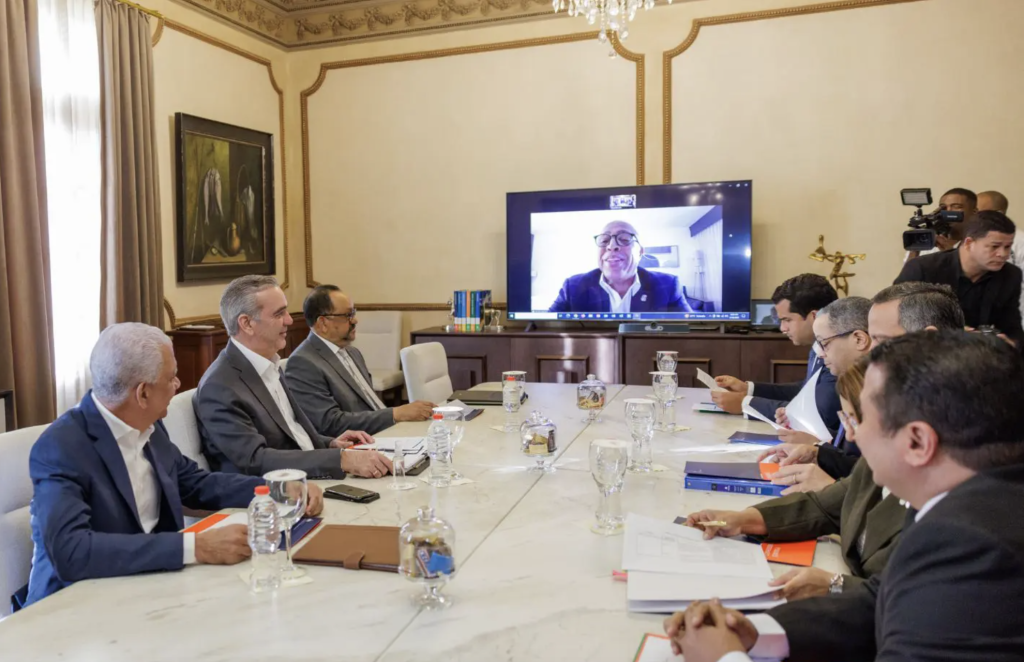
Advances to choose attorney general, new process is outlined
The members of the National Council of the Magistracy who met on 15 January 2025 approved the ruling that will apply to comply with the amendments in the 2024 Constitution.
President Abinader had convened the meeting of the CNM as another step before the choosing of the new prosecutor general to replace Miriam German Brito and seven adjunct prosecutors. The 2024 Constitution was amended so that the participation of the attorney general is removed from the CNM and the participation of the president of the Constitutional Court is added.
Law 1-25 establishes the process for selecting the next attorney general and seven deputy prosecutors.
Those present at the 15 January meeting included the presidents of the Supreme Court of Justice, Luis Henry Molina; the Constitutional Court, Napoleón Estévez Lavandier; the Senate, Ricardo De Los Santos; and the Chamber of Deputies, Alfredo Pacheco (via Zoom). Also in attendance were Supreme Court Justice Nancy Salcedo Fernández, Senator Omar Fernández, and Deputy Tobías Crespo.
The CNM approved the general advisors for the new council members were sworn in. Constitutional Court president Estévez Lavandier appointed Wilmer Alejandro Espinosa Palacio; Deputy Crespo appointed Manuel Moisés Crespo Pérez; and Senator Fernández appointed Nathanael Concepción.
Last week, President Abinader had signed into law Organic Law 1-25, which amends Law 138-11 of 21 June 2011, governing the National Council of the Magistracy. The new legislation assigns the Council the responsibility of selecting the Attorney General who serves as head of the Public Ministry (the prosecution arm of the Attorney General Office), taking into account the requirements outlined in the 2024 Constitution.
The CNM members also approved the ruling that will apply to the choosing of the new attorney general and adjuncts. The ruling will now move to public hearings and consultations for 20 days, ending in mid-February.
Peralta said that once the public’s feedback has been gathered, the Council will reconvene around 14 February to review any suggestions or concerns raised during the process.
He also announced that another meeting will take place soon, during which the President will present the candidate for Attorney General, along with half of the proposed deputy attorneys, as mandated by the Constitution.
The Executive Branch’s legal consultant explained that the schedule has been tentatively approved but could change. He emphasized that the timeline remains flexible, allowing the Council to adjust it as necessary.
“However, if everything proceeds as planned, the public is likely to know the names of those selected for these positions by 19 or 20 February,” Peralta said.
The meeting was attended by the presidents of the Supreme Court of Justice, Luis Henry Molina; the Constitutional Court, Napoleón Estévez Lavandier; the Senate, Ricardo De Los Santos; the Chamber of Deputies, Alfredo Pacheco (virtually); Senator Omar Fernández; and Deputy Tobías Crespo.
Listin Diario shares the outline of the actual process for selecting the new attorney general under the new rules.
The process begins with President Luis Abinader formally proposing a candidate for Attorney General and six deputies. These nominations must be accompanied by extensive documentation, including the candidate’s resume, a standardized form detailing their qualifications, and a notarized affidavit affirming that they have not held a leadership position in a political party within the past five years.
Once the president submits the nominations, the CNM will review the candidates and their credentials. The council is authorized to hold up to three meetings to complete the selection process. Notably, the CNM can invite the proposed candidates to attend these meetings.
Decisions made by the CNM require the affirmative vote of at least five of its members. In the event of a tie, the council’s president will cast the deciding vote. The CNM must make its decision public, though the regulations do not specify a timeline.
The new regulations establish that the CNM must have six of its eight members present to conduct a valid session. The CNM president, in this case, President Luis Abinader, will cast the deciding vote in the event of a tie.
Read more in Spanish:
CDN
CDN
Listin Diario
16 January 2025

